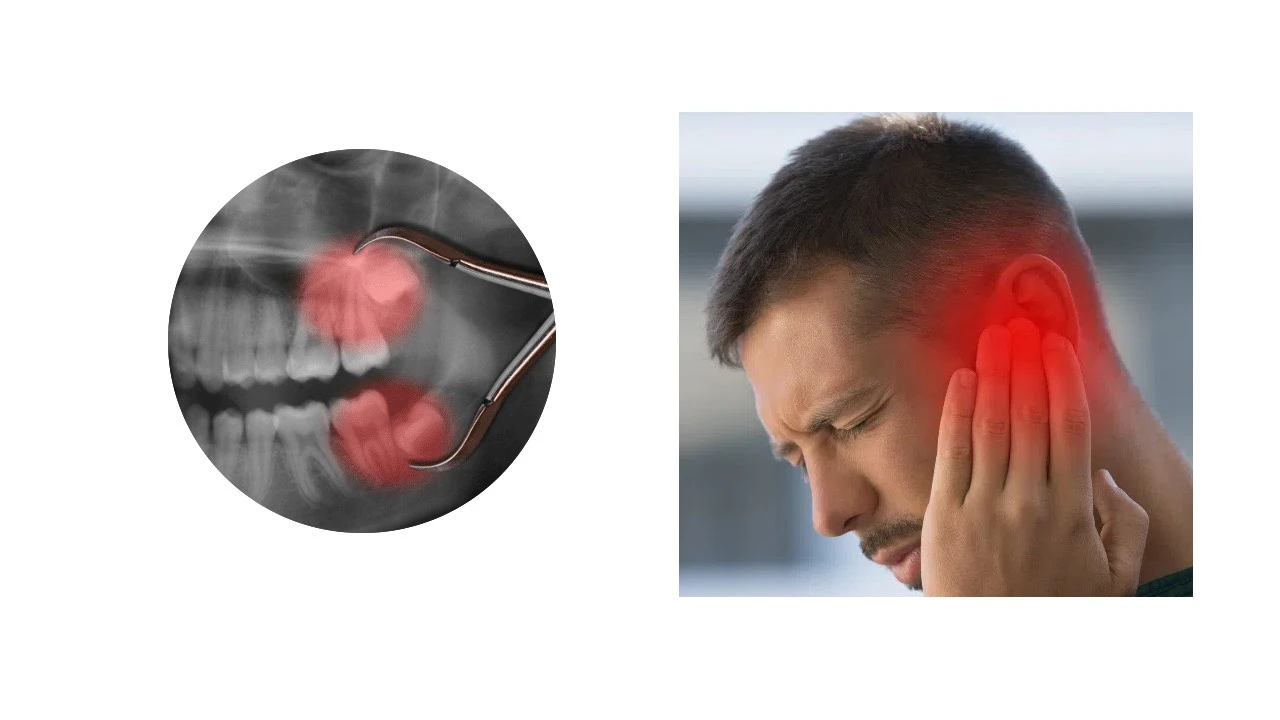Wisdom teeth removal is a common dental procedure. However, some patients may experience unexpected ear pain after the surgery. This discomfort can be concerning, but it is often a temporary side effect that can be managed effectively.
Understanding Ear Pain After Wisdom Teeth Removal
The ears and wisdom teeth are located in close proximity. During the removal process, the surrounding tissues, muscles, and nerves may become irritated or inflamed. This can lead to referred pain or discomfort radiating to the ear area.
Causes of Ear Pain After Wisdom Teeth Removal
Several factors can contribute to ear pain after wisdom teeth removal:
- Muscle Tension and Inflammation: The muscles and tissues around the jaw and ear area may become tense and inflamed due to the surgical procedure.
- Nerve Irritation: The nerves that supply sensation to the ears and jaw are interconnected. Irritation or trauma to these nerves during the extraction can cause referred pain.
- Swelling: Postoperative swelling in the jaw and facial region can put pressure on the ear canal and surrounding structures, leading to discomfort.
- Dry Socket: A dry socket is a painful condition that occurs when the blood clot dislodges from the extraction site, exposing the underlying bone and nerve endings.
Symptoms of Ear Pain After Wisdom Teeth Removal
The symptoms of ear pain after wisdom teeth removal can vary in severity and duration. Common signs include:
- Dull, aching pain in or around the ear
- Throbbing or sharp pain that may radiate to the jaw or temple
- Sensitivity to touch or movement around the ear area
- Ringing or muffled hearing in the affected ear
It’s important to note that these symptoms may be accompanied by other postoperative discomforts, such as swelling, jaw stiffness, and difficulty opening the mouth wide.
Management and Treatment Options
Ear pain after wisdom teeth removal is typically temporary and can be managed with proper care and treatment. Here are some effective strategies:
- Pain Medication: Over-the-counter pain relievers, such as tramadol, acetaminophen or ibuprofen, can help alleviate discomfort and reduce inflammation.
- Cold Therapy: Applying ice packs or cold compresses to the affected area can help reduce swelling and numb the pain.
- Saltwater Rinses: Gently rinsing with warm saltwater can help promote healing and reduce inflammation in the mouth and jaw area.
- Jaw Exercises: Gentle jaw stretches and exercises can help relieve muscle tension and promote better healing.
- Antibiotic Treatment: If the pain persists or worsens, your dentist or oral surgeon may prescribe antibiotics to prevent or treat an infection.
- Dry Socket Treatment: In cases of a dry socket, your dental professional may need to clean the extraction site and apply a medicated dressing to promote healing.
Prevention and Self-Care Tips
To minimize the risk of ear pain and other complications after wisdom teeth removal, it’s essential to follow your dentist’s or oral surgeon’s instructions carefully. Here are some helpful tips:
- Avoid strenuous activities and smoking during the recovery period
- Maintain proper oral hygiene, gently brushing and flossing the remaining teeth
- Eat soft, nutritious foods and stay hydrated to support healing
- Avoid drinking through a straw or spitting forcefully, as this can dislodge the blood clot
If the ear pain persists or worsens, or if you experience severe swelling, fever, or difficulty swallowing, it’s crucial to seek medical attention promptly, as these could be signs of a more serious condition.
Statistics Related to Ear Pain After Wisdom Teeth Removal
- According to a study published in the Journal of Oral and Maxillofacial Surgery, approximately 30% of patients experienced ear pain or discomfort after wisdom teeth removal [https://www.joms.org/article/S0278-2391(14)01259-3/fulltext].
- Research suggests that the incidence of ear pain is higher in cases where the lower wisdom teeth are extracted, as these teeth are closer to the ear region [https://www.sciencedirect.com/science/article/abs/pii/S0901502718301585].
- A study by the American Association of Oral and Maxillofacial Surgeons found that proper postoperative care and adherence to instructions can significantly reduce the risk of complications, including ear pain, after wisdom teeth removal [https://www.aaoms.org/practice-resources/aaoms-advocacy-and-position-statements/white-papers].
By understanding the potential causes and seeking prompt treatment, individuals can effectively manage ear pain after wisdom teeth removal and promote a smoother recovery process.

